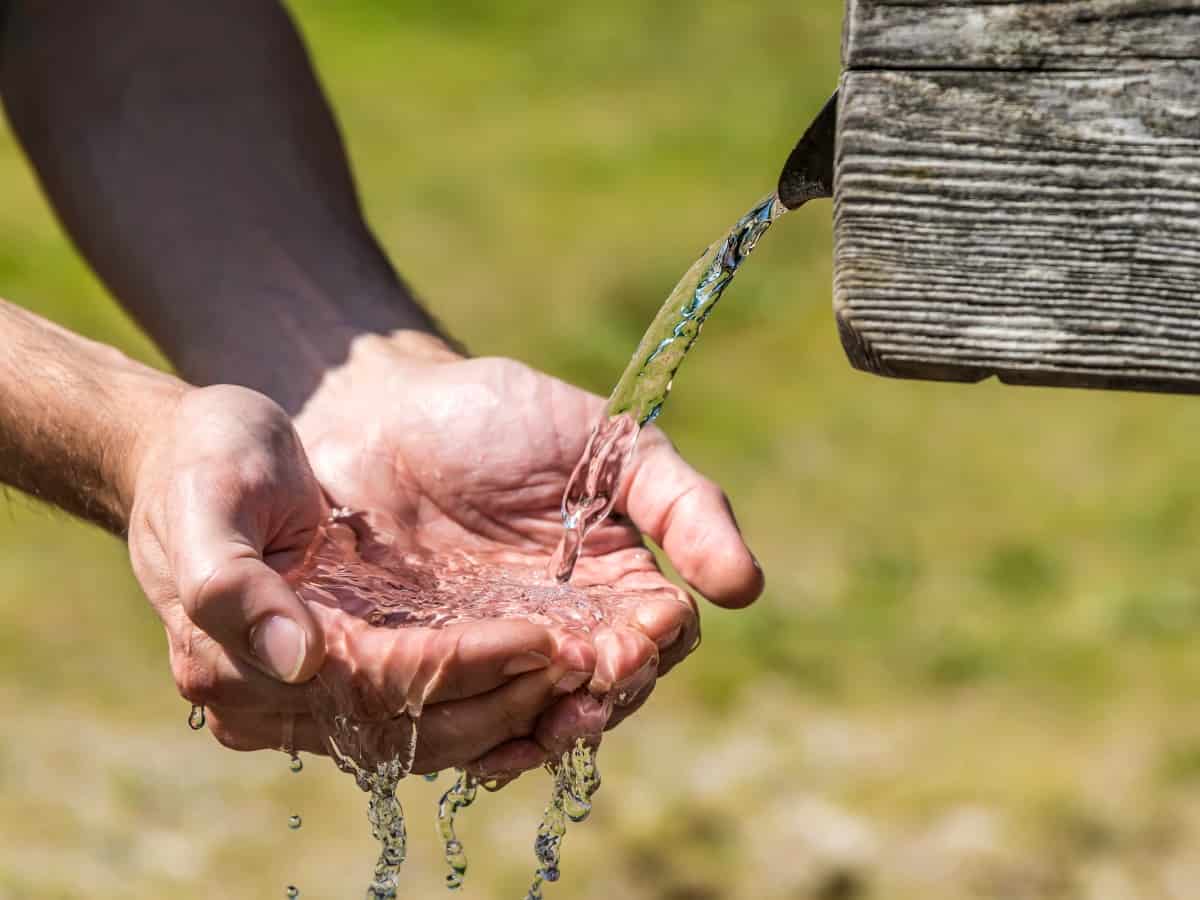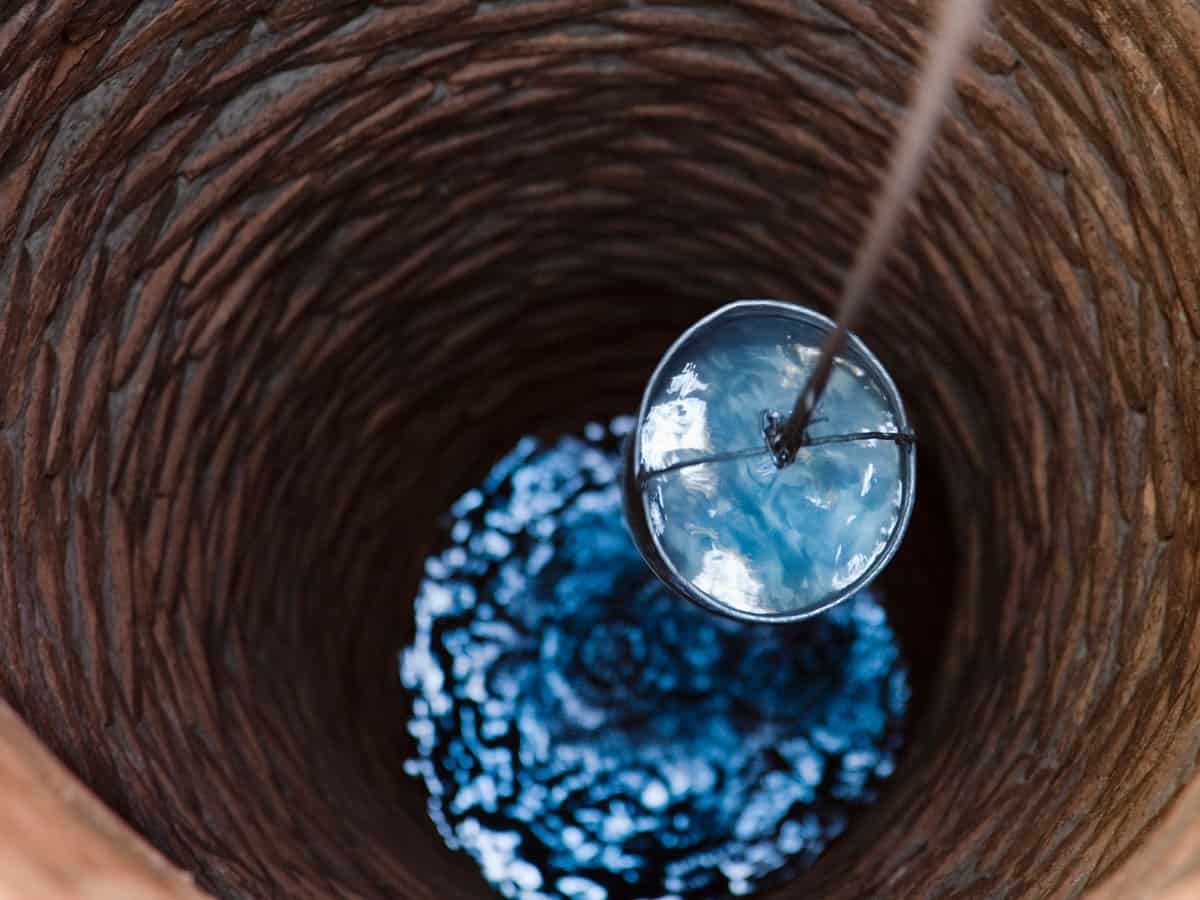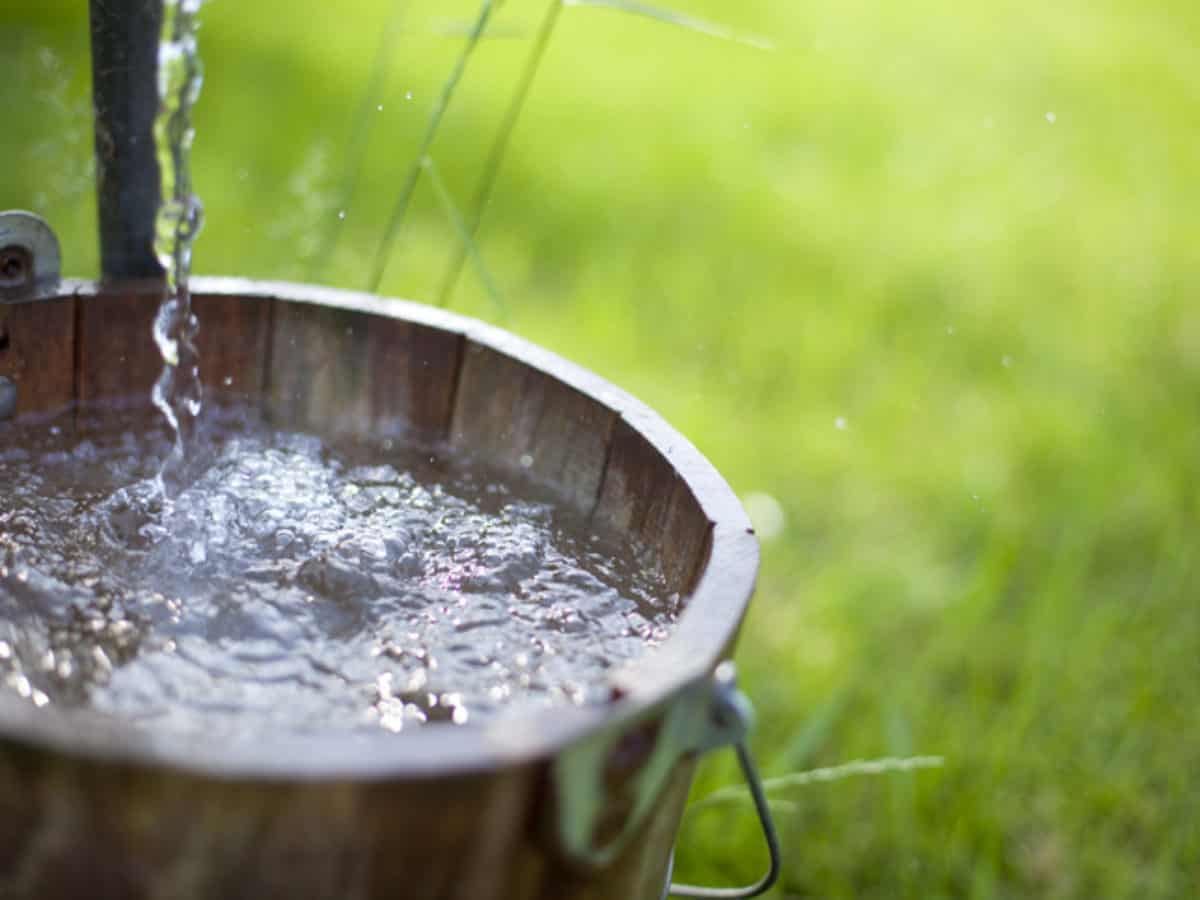Water is an essential resource for all life on Earth. Unfortunately, in many parts of the world, water is scarce, and clean water is even rarer. City water and well water are the two primary water sources in residences. If you have recently purchased a home with a well, you may have questions like, what is well water? Is it safe to drink water from the well? Well, this article is for you in case you have such questions.
According to the U.S. Environmental Protection Agency (EPA), over 23 million American families rely on private wells for domestic water use. This makes it very common, especially in rural areas where tap water is unavailable. So now, let’s dive in, look at this free water source, and see how it can benefit you. This article looks at what is well water and provides essential information about your home’s water source.
Understanding Well Water
Let’s first define a well in order to understand well water better. A well is an excavation or structure drilled, driven, or dug to access groundwater in an aquifer. Now, what is well water? It’s water that the Earth has naturally filtered.
You can use this water for cooking, laundry, drinking, livestock, and irrigation. In many parts of the world, well water is the only source of clean water.
What’s the Difference Between City Water and Well Water?
If you live in the city, you probably have access to the water that comes from the municipality. However, you can still own a well in the town, although groundwater is most common in rural America. The municipal water comes from lakes, rivers, large wells, or reservoirs. The water is then treated before it reaches your home. For it to be safe for domestic use, community water quality must meet the standards set by the government, such as EPA or other regulatory bodies.
Unfortunately, well water is not regulated by EPA standards, meaning you’re on your own as a well owner. You will be responsible for the quality of the water you use in your home. Even though the EPA does not regulate the water from private wells, they share information regarding water testing and treatment technologies.
What Are the Benefits of Having a Private Water Well?
Having a private well has so many benefits. Here are some:
Well Water Saves on Water Bills
Did you know an average American household uses over 300 gallons of water daily at home? You can equate it to $83 per month, $1,000 annually. So, it’s excellent you’ll never worry about water metering or rationing when using a well. Although the initial costs of constructing a well are more, it will soon pay for itself, and you may start using the free water.
You’ll Have Control over the Quality of Your Water
Community water systems must meet specific water quality standards. However, passing these standards does not mean the water is safe, as it may be full of contaminants. When you have a private well, you can have your water tested more often to ensure it’s safe and free from contaminants.
Well Water Is Reliable
Unlike public water systems, which can be subject to disruption, private wells are not reliant on these systems. This shows that you can always rely on having access to water, even in an emergency.
Increases Your Property’s Value
Having a well on your property helps increase its value. However, it will depend on the quality of the water. If the water is for drinking, it is more valuable than irrigation water.
If you decide to sell your house, prospective buyers will recognize the value of having a water supply in their home. As a result, they may be more inclined to pay extra for your property than a home without a well.

Is Well Water Safe for Drinking?
While most well water is safe for consumption, some potential contaminants could make it unsafe. Pollutants can find their way into it and cause serious health problems. That’s why it’s essential to have your water regularly tested to ensure it is safe to drink. Here are the common contaminants you can find in well water:
- Heavy metals: Heavy metals, such as lead and mercury, can enter the well through leaching from pipes or other sources.
- Microorganisms like bacteria and viruses can enter through contaminated surface water.
- Organic chemicals: Organic chemicals, such as pesticides and herbicides, can enter it through leaching from the soil.
- Nitrates and nitrites: Nitrates and nitrites, found in fertilizers and animal waste, can enter through leaching from the soil.
- Radionuclides are radioactive isotopes of elements that can be found in the environment. These components can cause cancer and other health problems.
What Are the Sources of Contaminations?
There are many sources of contaminants, both natural and artificial.
Naturally occurring sources include:
- Minerals in the ground
- Decaying organic matter
- Runoff from land
- Floods
- Atmospheric deposition
Artificial sources of contamination include:
- Sewage
- Industrial waste
- Agricultural chemicals
- Construction or mining near your well
- Landfills
- Hazardous Waste
The best way to protect your water source is to identify and control as many sources of contamination as possible. You can do this through better sewage treatment, avoiding construction near the well, proper waste management, and better land-use practices.

How to Know If It’s Safe for Drinking?
It’s essential to contact a professional if you’re concerned about the safety of your well. An expert will probably recommend you test your well water for any contaminants. Testing your water for contaminants and installing a filtration system are crucial to having a safe drinking home in your home.
Testing Your Well Water
Are you wondering whether it’s necessary to test the water in your well? Testing the water gives you a good idea of what contaminants are present. In addition, testing can help you determine the hardness of your water, which can be important for home water treatment systems. On top of this, it can help you monitor your water quality over time to ensure that it remains safe to drink.
There are two ways you can test it: do it yourself or with the help of a professional. The best thing is to let an expert do it for you since they have the experience and equipment to do the testing. Also, experts can help you determine the best way to treat your water. In short, professional testing of your well water is the best way to ensure that you and your loved ones are safe from contaminated water.
Here are the contaminants and parameters that are tested in your well water:
- Coliform bacteria
- Sulfate
- Fluoride
- Total dissolved solids (TDS)
- Basic potability
- Ions
- Nitrate
- pH levels
- Arsenic
Most companies provide free comprehensive water tests and interpret the results to help you make the right decision.
Keep Your Well Water Safe for Drinking
Your family’s health is in your hands. That’s why it’s essential to know how to keep your well water safe for drinking to prevent you from serious health risks. Here are some ways you can ensure this:
Test Your Well Water Regularly
You should test for microbiological contamination, pH level, and nitrates at least once a year and after three years for chemical contamination. Otherwise, do it more often if you have reason to believe there may be a problem, like if you notice the taste, odor, or appearance changes.
Ensure You Properly Maintain Your Well
Properly maintaining your well is also essential. Ensure you keep the area around your well clean and debris-free. Repair any leaks or cracks in your well casing, and keep an eye on the condition of your pump.
Use a Water Filtration System
The only safest and surest way to keep your water clean and potable is by installing a water filtration system in your home. The water filtration system can eliminate contaminants from your water, such as lead, chlorine, and bacteria. This is important for both your health and the longevity of your plumbing. A water filtration system can also improve the taste of your water, making it more pleasant to drink.
Also, a water filtration system can save you money in the long run. By filtering out impurities, you can extend the life of your appliances and plumbing. And, by drinking cleaner water, you can avoid costly medical bills associated with drinking contaminated water.

Install a Whole Home Water Filtration System from ONIT Home
We hope this article helps you understand what is well water, especially if you’re a new homeowner. Suppose you’ve been using well water; you’re tired of lugging around heavy jugs of water or constantly buying bottled water. Would you like clean water at every sink and faucet in your home? If so, it’s time to get a whole-house water filtration system!
ONIT Home’s whole-house water filtration system will provide you with clean, filtered water at every tap. Also, it saves you money by eliminating the need for bottled water or costly repairs to your plumbing. Our experienced professionals will ensure that your water filtration system is installed correctly. We also offer a wide range of financing options to make clean water more affordable in your home. Call us at 1-833-433-0331 or visit us online for more information. We’re always ONIT!



